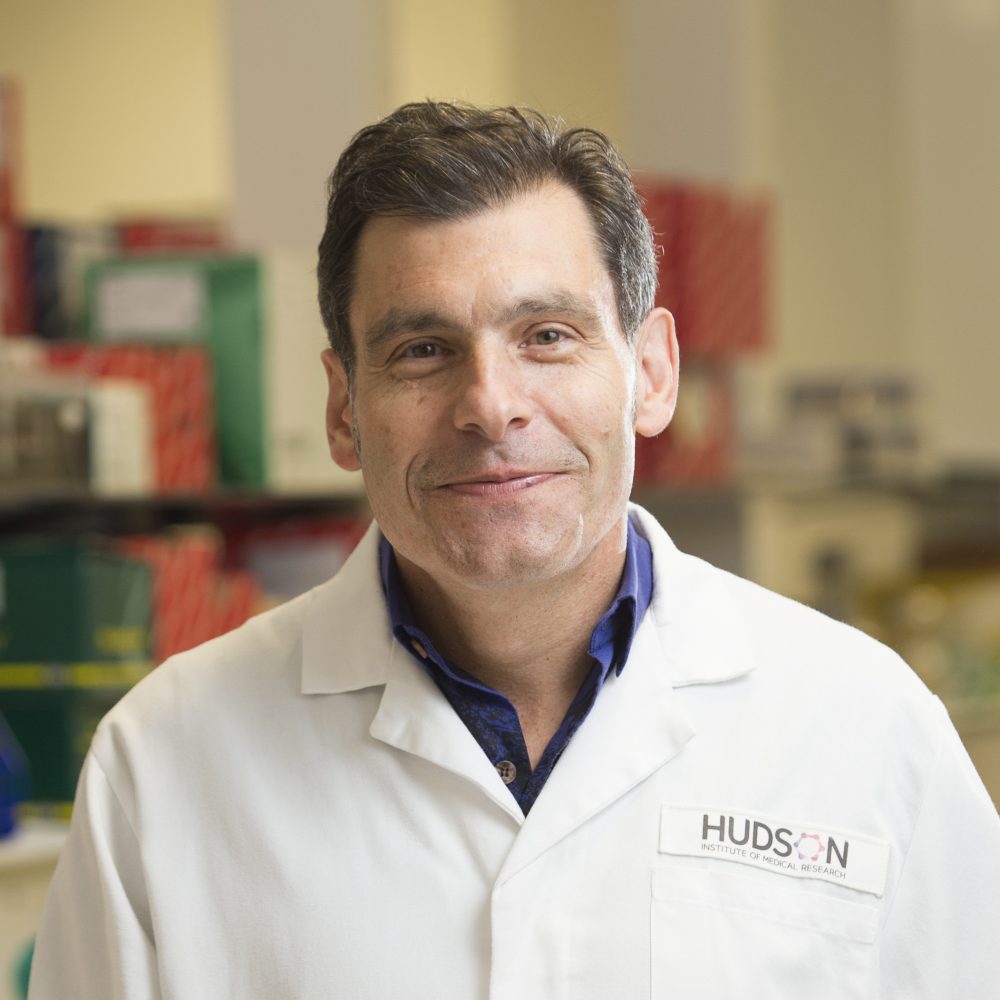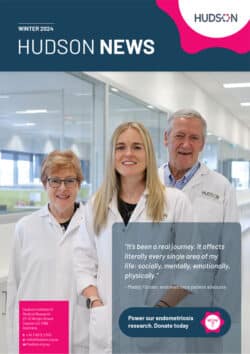Late diagnosis is one of the biggest issues in stomach cancer. The major focus of my research is Helicobacter pylori, responsible for one of the most common infections in humans and the causative agent of peptic ulcer disease and stomach cancer, with the goal to save lives thorough better detection and treatments.

Areas of interest
Antimicrobial resistance Gastroenteritis Inflammation and cancer Stomach cancer
Research group
Gastrointestinal Infection and Inflammation
Biography
Deputy Centre Head for the Centre for Innate Immunity and Infectious Diseases, Professor Richard Ferrero is a microbiologist by training. He is currently the Research Group Head of the Gastrointestinal Infection and Inflammation Research Group in the Centre for Innate Immunity and Infectious Diseases.
Professor Ferrero completed his PhD research at the University of NSW (Sydney), before moving overseas in 1990 to take up a postdoctoral position at the Institut Pasteur in Paris (France). In 1994, he was appointed to a tenured research position in the Département de Bactériologie et Mycologie at the Institut Pasteur. Professor Ferrero returned to Australia in 2004 to take up a teaching/research academic appointment as Senior Lecturer in the Microbiology Department at Monash University. In 2009, he was recruited to his current position at Hudson Institute of Medical Research.
The major focus of Professor Ferrero’s research is Helicobacter pylori, the causative agent of peptic ulcer disease and gastric cancer. His work in this area has been broad, covering various scientific disciplines: from microbial physiology and molecular pathogenesis, through to vaccine development and mucosal immunology.
Among his major research achievements have been the development of a candidate H. pylori vaccine and identification of the mechanism by which the host defence molecule, NOD1, regulates innate immune responses to H. pylori.
Professor Ferrero has contributed more than 80 works in journals and books, as well as being an inventor on patents. His works have been published in leading scientific journals, including Gastroenterology, Immunity, PNAS and Nature Immunol.
Professor Ferrero has been awarded prizes from various scientific and medical bodies, and is regularly invited to present his research or chair sessions at international and national conferences. He is a regular abstract reviewer for major international conferences in the fields of gastroenterology and Helicobacter research, and is an international member of the scientific committee of The International Workshop on Pathogenesis and Host Response in Helicobacter Infections.
Student opportunities

Publication highlights


